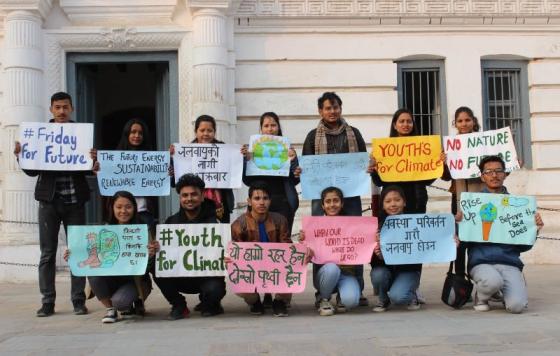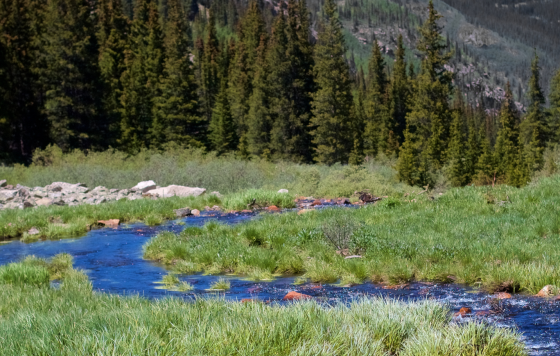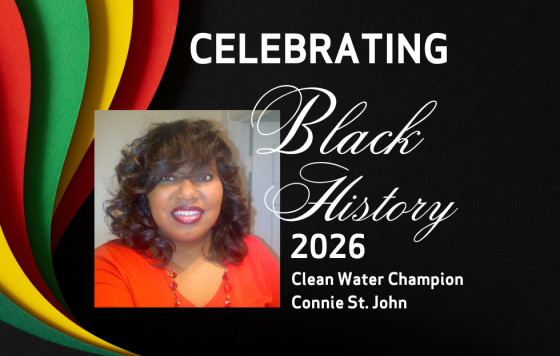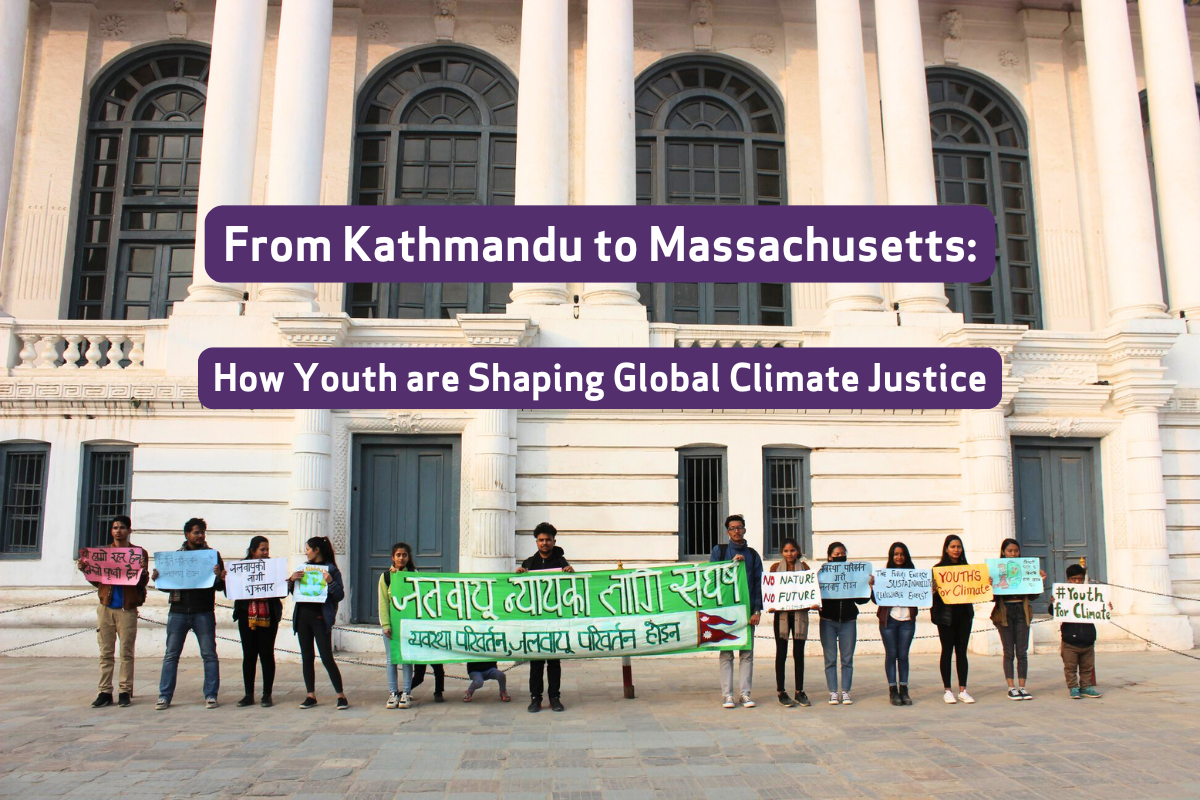
By Chhimi Sherpa, Clean Water Action intern in Massachusetts
Not a day went by without me wearing a mask as my severe dust allergy made it a necessity. Growing up in Kathmandu, which is among the cities with the worst air pollution, a mask was my everyday companion and considered very normal. But let’s pause for a moment and think – How normal is it to breathe polluted air every second you breathe? How normal is it to face environmental issues every day? Access to a clean environment is a basic human right and in no way is it normal to have that right denied. That observation was the beginning of my journey in a global youth movement for climate and environmental justice.
Belonging to a community where “Environmental Science” as a major for college is not as respected as other professions in the medical or engineering field, I initially did not have much confidence in pursuing my interest in environmental work. But in my second year in college, I learned about indigenous people in Nepal and all over the world and their contributions to climate change adaptation. As a youth belonging to an indigenous group myself, I wanted to learn more.
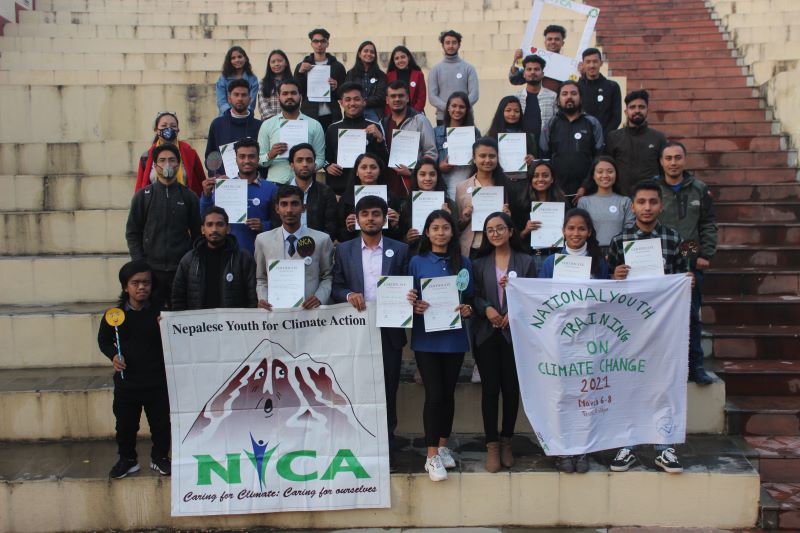
My curiosity took me out of the classroom and into the world of global climate policy. I joined Nepalese Youth for Climate Action (NYCA) as a volunteer and eventually joined the core team. Working with my peers, sharing the common passion for youth empowerment, and encouraging as many young people as possible get involved with environmental and climate justice work was inspiring.
With NYCA, I participated in the comprehensive review of Nationally Determined Contributions (NDC) policy and provided recommendations to the Government of Nepal. This is a climate action plan created by each country that ratified the Paris Agreement to decrease their greenhouse gases emissions. Looking back at it, we did not have many resources such as training to understand climate policy, greenhouse gas emissions protocol, or the technical aspects of NDC. Despite this, we were determined and interested in learning by doing as much as possible. Where we lacked expertise, we brought energy and passion. This is one of the strengths of young people.
Three years later, I had the privilege of attending the Local Conference of Youth (LCOY) in October 2023 in Washington, D.C. as a delegate. I got insights into the climate policy advocacy being done by U.S. youth and was able to provide my insight and lived experiences from Nepal to form the NDC of the United States. Environmental Justice matters to everyone and in every place.
I also joined the global youth-led Fridays for Future movement. I involved myself in Climate Strikes on Fridays, visiting UNESCO world heritage sites in Kathmandu Valley to gain the attention of the public about environmental issues and climate change. We demanded urgent action from governments worldwide to react to the growing climate crisis with strong policies and inclusion of young voices. It provided me with a sense of solidarity.
My work with youth organizers continues here in the United States. Youth (ages 10-29) account for 13% of the total American population. Youth summits and workshops are crucial to bring enthusiasm, interest, and curiosity to the environmental movement and to educate young people about environmental and climate issues. Clean Water Action’s Youth Action Collaborative (YAC), a leadership development program that empowers Massachusetts youth to act on local environmental issues, is a great example. Malden youth examined how their lived experience of pollution connects to global issues, much as I began my journey in Kathmandu.
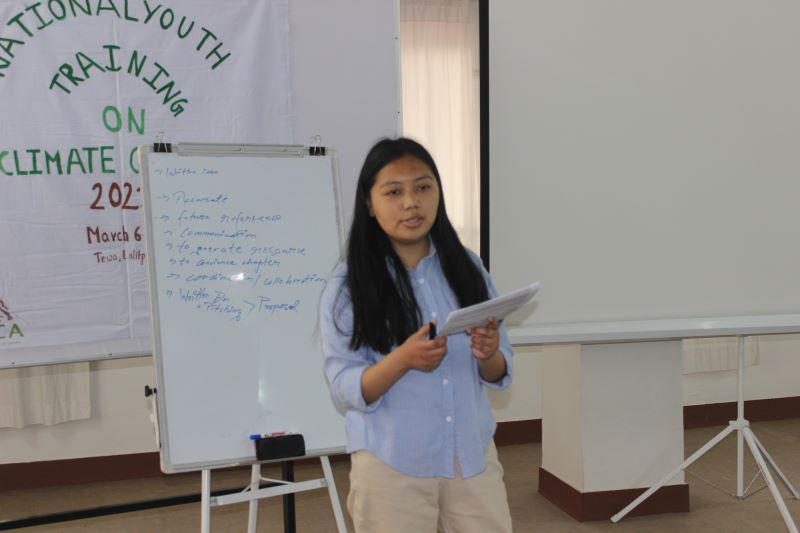
Growing up with the constant battle against dust in Kathmandu, and later finding my place in youth climate movements, taught me that real change starts with us—young people who refuse to stay silent. We’re not waiting for the future; we’re making it happen now. Whether through strikes, volunteering, or simply speaking out, I’m proud to be part of a generation that’s fighting for a fairer, cleaner world. Based on my experience and observation, Environmental Justice is not possible without youth involvement. My journey has not ended yet and it never will because I have learned and tried my best to bring changes and make an impact from Nepal to the United States.
